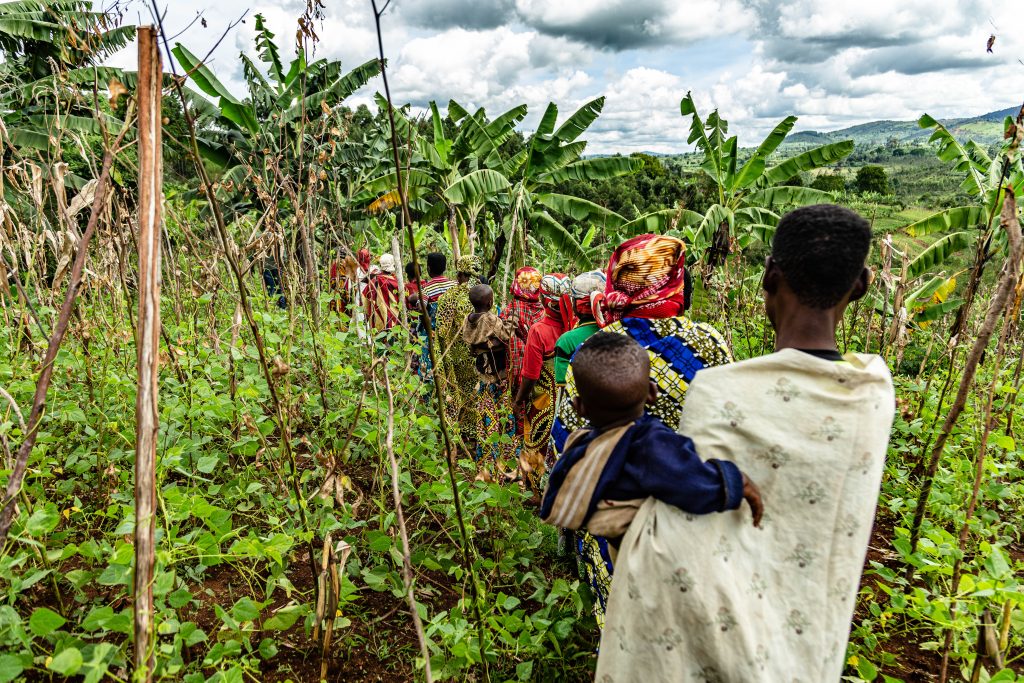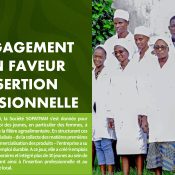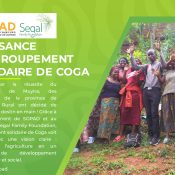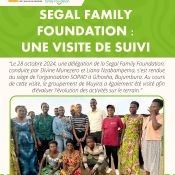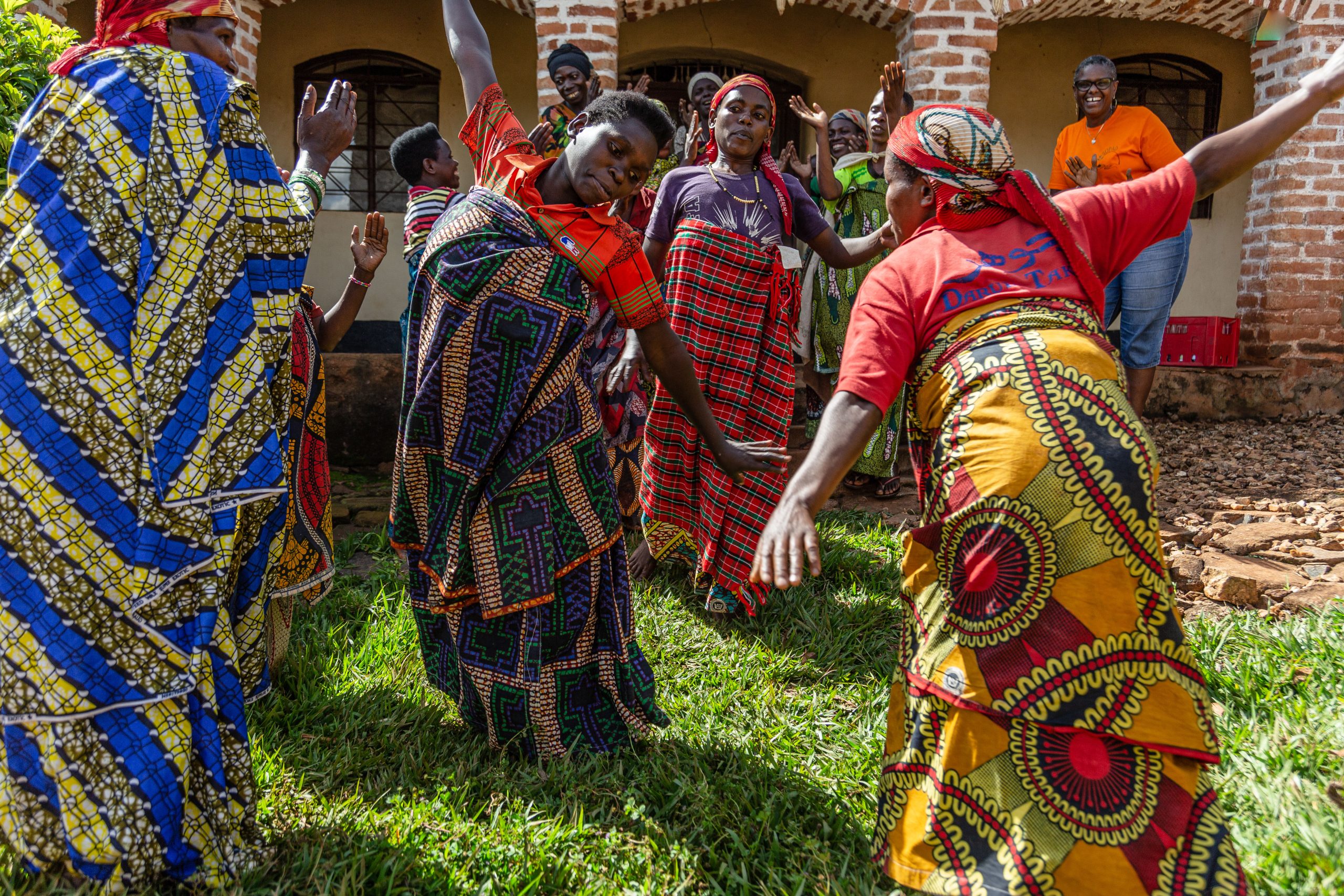
COPAD: 'Abatwa' - a community like any other!
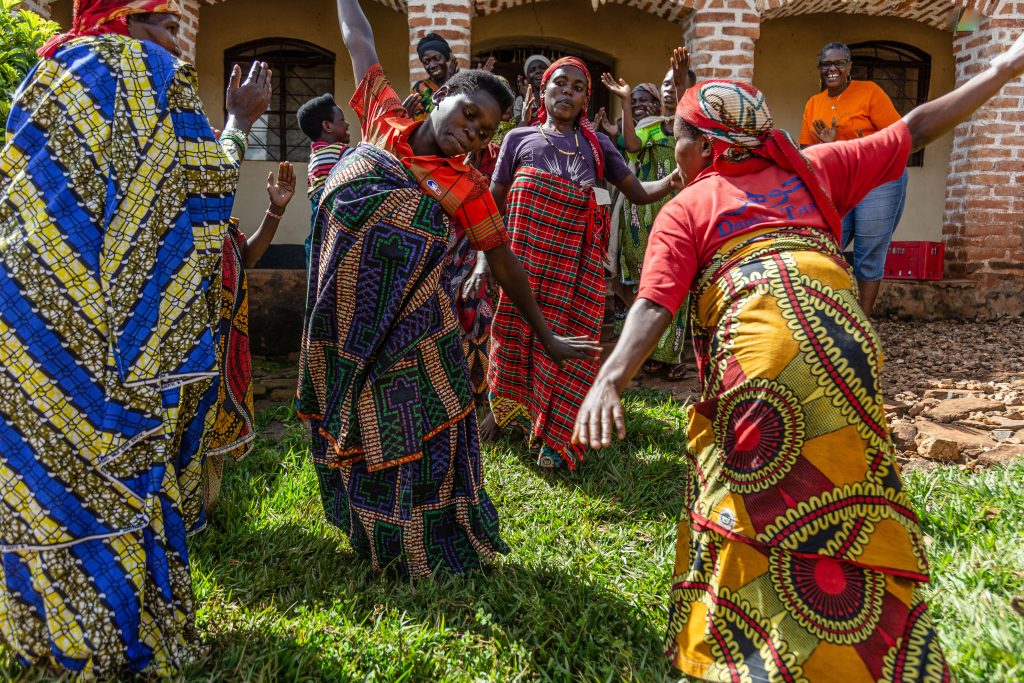
When we talk about 'Abatwa,' we understand a separate community, one could say, for whom the laws and regulations of the country are made for some and not for others. For decades, this category of people has never been able to defend its interests, and their existence remains scorned while the world around them continues to dance to its own rhythm. To stand out, the COPAD cooperative supports 14 women from this community in economic development activities in the Kiganda commune of the Muramvya province.
It is 9:30 AM. It's Friday. The sunlight is less intense on the place where a team of young women from the Batwa community in the Kiganda Commune hum joyful tunes to the rhythm of traditional dance, waiting for the launch of COPAD Cooperative's cultural activities. At the helm of the group, Madame Bénigne Kigeme expresses her joy first before recounting their expectations from the cooperative, including unity and an opportunity to assert themselves among neighboring villagers who, in a corner, mocked with heavy words, 'Ntamuntu asangira nabatwa aba ari igicibwa,' literally 'a person is cursed when sitting with the Batwa,' as if they are not Homo sapiens. Somehow, the 14 women in question were indifferent, as if they had gotten used to digesting such insults.
Despite everything, nothing in the world could stop the Batwa women of the Kiganda commune in their vision and their determination to create a group. In their initial request, their desire is to make themselves known at the communal level to work formally. Besides this necessity, they want to acquire working equipment so that when they are not engaged in cooperative activities, they can work in people's fields and earn money. They also want to establish a savings fund to prepare for their future and to finance their micro-projects, with a focus on goat and pig farming.
An entire chain of beneficiaries
Looking at the atmosphere and the joy on the faces of these young ladies, one can guess that they really needed a catalyst to start this project they had been waiting for months. It can be concluded that they hoped for income, and this was indeed the reason for their union.
The woman named Yolande Buganayandi, a team member, expresses: « We don't have land, we live in extreme poverty. Welcome COPAD, which comes to give us a helping hand. From now on, we will be able to earn money and send our children to school. Moreover, our families will be able to eat to their heart's content.. » Before adding that « The COPAD will also allow us to have small livestock to be considered in society. Our husbands will no longer have to bear the burden alone of providing for the family's needs. ».
It's not only the women who benefit, but rather a whole chain of beneficiaries, up to the final consumer of agricultural products who enjoys the taste.
From plowing to sowing, from weeding to harvesting, a whole chain of activities overlaps and allows women to earn their daily bread. For tasks that require muscular strength, such as uprooting tree stumps, the women beneficiaries of the project seek the support of their husbands.
The local administration also rejoices in this development project targeting vulnerable individuals who have been excluded from society, as expressed by a councilor.
A heap of challenges overcome
The Batwa women of Kiganda have no cultivable land. They mainly live off casual labor jobs they perform for farmers; otherwise, they spend time in the streets or town centers begging for something to eat. The COPAD cooperative operates on approximately 3.5 hectares where it grows staple crops such as maize, beans, and potatoes, as well as hibiscus and passion fruit. According to Madame Claudette Nduwayezu, the pioneer of this activity, a portion of the harvest, equivalent to one hectare, will be used to feed the families of these beneficiary women, while the rest will be sold to ensure the sustainability of the project.
In addition to a portion of the harvest that belongs to them, the beneficiary women are paid daily for all farm tasks. The average cost of labor is 2,500 BIF per day for a woman and 3,000 BIF per day for a man. This means that, on average, a woman can earn 300,000 BIF for a season, enough to buy livestock or have an income equivalent to that of a licensed civil servant.
COPAD has implemented a plan to provide meals for its beneficiaries and often their children during workdays to relieve them of culinary concerns. This has been truly satisfying for these women, as highlighted by Triphonie Ngendakumana, one of the group members. This plan was also initiated to combat severe malnutrition that was rampant among the children of this community, instead of believing in superstitions and the witch's broom as has always been the case when a sudden death occurs.
Editorial, ID
